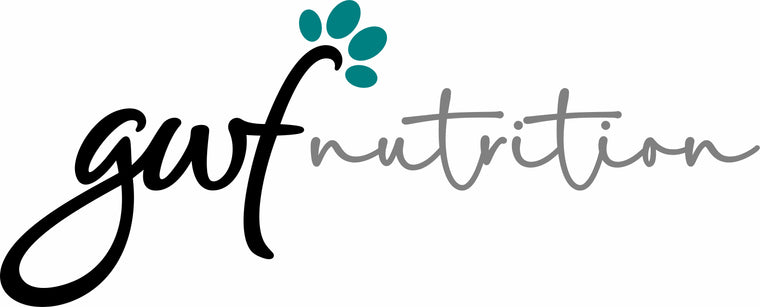There are a number of causes of colic in horses, from indigestion to twisted intestines or blockages from feed, and the word "colic" itself simply means abdominal pain.
Although equine colic is relatively common and can often be easily treated, it can also be extremely dangerous for your horse and should always be treated as an emergency.
What Can Cause Colic in a Horse?
Nature designed horses to roam over distances of at least 5km a day, looking for food and grazing on the way. This “trickle feeding” means eating a large quantity of low energy food over the course of the whole day, and of course plenty of chewing.
However, many horses these days are stabled for eight hours, fed twice a day with hard feed and limited hay. This is a very different way of life from what nature intended and your horse’s intestines have unfortunately not evolved to cope with this modern routine. This can leave them more susceptible to any stress from changes to routine or environment.
Horses only produce saliva whilst chewing, which means that a long period of grazing is needed to neutralise stomach acid and help prevent common equine digestive issues like ulcers or colic. A horse’s digestion also produces gas whilst breaking down food, and without the right diet and routines this can build up and cause the gut to become distended.
Contributing factors to colic for horses are:
-
Poor or inadequate diet, including sudden changes and inappropriate quantities of forage/fibre or water.
-
Digestive issues including previous episodes of colic or poor teeth.
-
Overgrazed pasture
-
Sandy pasture
-
Stress, including travelling, sudden changes of environment or exercise after eating
-
Mouldy feed or parasite infestation
-
Impaction
-
Long term use of NSAIDs
-
Overstabling
Signs of Colic in Horses
You may notice your horse exhibiting some unusual behaviours if they are suffering from colic:
-
Restlessness
-
Rolling
-
Peculiar postures including biting the flanks or pawing
-
Loss of interest in food or water
-
Bloating
-
Sweating and increased breathing rate
-
High pulse
-
No gut sounds
A colicky foal may lay on the back with their legs tucked, rather than showing the usual symptoms listed above.
What To Do if Your Horse is Showing Signs of Colic
If you think your horse has colic you should contact your vet straightaway, even if you think it’s mild or you are unsure. Waiting too long could mean that even minor problems become severe or untreatable. For example, if there is excess fluid in the stomach it could rupture surprisingly quickly after the onset of symptoms. If that happens, there is no way to save your horse.
Making sure you know your horse’s normal pulse, temperature and breathing rate means you can let the vet know of anything out of the ordinary.
While you are waiting for the vet:
-
Remove any feed and water until advised otherwise by your vet in case there is a blockage or impaction or distention of the gut.
-
If your horse is rolling or restless make sure they are in a safe area like a large stable
-
Let them lie down if it makes them comfortable, as long as they are not rolling
-
A gentle walk may help if it’s safe and recommended by your vet
-
Monitor vital signs at least every 15 to 20 minutes.
Treatment For Colic in Horses
In many cases, your vet may be able to treat the colic with drugs and may prescribe medication to provide pain relief for your horse and calm them down.
However, more serious cases involving severe impactions or twists in the gut may need immediate surgery. This will mean taking your horse to an equine hospital. It’s worth noting that the symptoms of colic in horses can be mild and difficult to spot even with serious cases, so if you are in any doubt act quickly.
Preventing Colic in Your Horse
Once you know what has caused your horse’s colic and they have been properly treated, you will be better placed to prevent it from happening again. For example if a parasite like strongyles has caused the problem, make sure you practice a regular deworming routine going forward to prevent a reoccurrence.
Many of these tips are good practice in caring for your horse anyway:
-
Plenty of forage in the diet (a minimum of two thirds) and as much “grazing” time as possible. Use hard feeds only as a supplement to hay or haylage. See our blog post Hay or haylage for a horse with ulcers: getting forage feeding right for more information on feeding for good digestive health.
-
You can also help digestive issues by providing a balancer like Equilibra alongside forage.
-
Ensure feed is good quality and free from mould
-
Make sure fresh water is available at all times
-
Keep a regular routine as much as possible and avoid any sudden changes in diet or exercise
-
Turn out as much as possible but avoid overgrazing the pasture
-
Avoid sandy pasture and keep feed off the ground
-
Make sure you are up to date with worming treatments
-
Monitor teeth regularly for any dental problems that could cause chewing issues
-
Give your horse adequate exercise and allow them time to cool off afterwards.
Catching colic early will likely mean a better outcome for your horse, so make sure you are familiar with your horse’s usual temperature and pulse, particularly if your horse has had colic before.
Feeding Advice for Your Horse
Looking for more advice on feeding your horse? Go to our Equine Feeding Guide or speak to our helpful nutrition team on 01225 708482.
